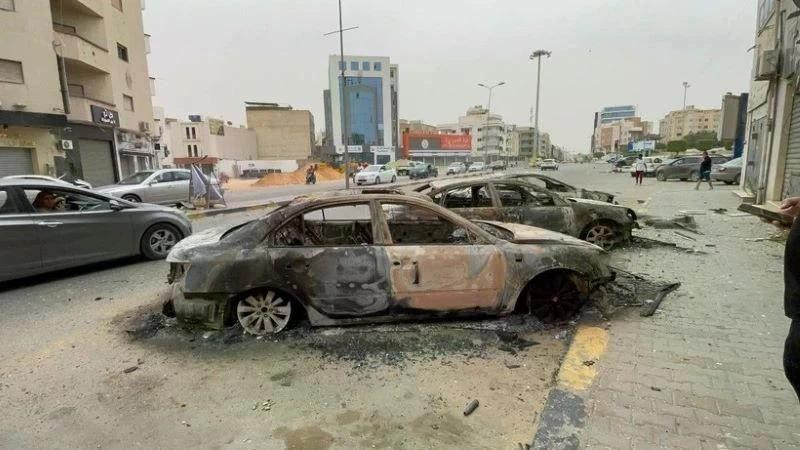Fears of escalating violence, potentially reigniting broader conflict and threatening regional stability, have prompted the African Union (AU) and neighbouring countries to urge Libya’s rival factions to cease hostilities and engage in dialogue to find a political solution to the ongoing crisis.
Libya has remained deeply divided since the 2011 uprising that led to the overthrow of Muammar Gaddafi. The country has since descended into a state of fragmented governance, with two parallel administrations: the UN-recognised GNU based in Tripoli, and the eastern government backed by the Libyan National Army (LNA) led by General Khalifa Haftar.
Although the civil war has ended, tensions between rival factions continue to simmer, raising the risk of renewed violence at any moment. The mid-May clashes in Tripoli were triggered by the killing of an armed faction leader by the 444th Brigade.
Subsequently, the 444th Brigade, an armed group loyal to Prime Minister Dbeibah's GNU, clashed with the Radaa force, another armed group controlling several areas in eastern Tripoli and Tripoli Airport. Violence escalated after Dbeibah issued a series of executive orders aimed at disarming the Radaa force and dissolving other armed groups in Tripoli, while notably excluding the 444th Brigade from these measures.
As one of the North African nations that suffered severe consequences during the "Arab Spring" protests of late 2010 and early 2011, Libya remains, nearly 15 years later, mired in crisis. Before the 2011 political upheaval, Libya was among the world’s leading oil-exporting nations.
Despite possessing Africa’s largest proven hydrocarbon reserves, Libya is unable to revitalise its oil industry due to ongoing internal strife. The deep political division and chronic instability continue to hamper oil production, the country’s main source of foreign currency revenue.
In response to recent developments that risk igniting a new round of violence, the AU Peace and Security Council (AUPSC) has called for an unconditional ceasefire and a comprehensive reconciliation process led by Libyans themselves, while firmly opposing foreign interference in the country's internal affairs.
Following a recent meeting of the foreign ministers of Egypt, Tunisia, and Algeria, the three neighbouring countries issued a joint statement urging all Libyan factions to prioritise the people’s interests.
Egypt, Tunisia, and Algeria have called on Libyan parties to reach a consensus, under UN supervision and with regional support, to end the division and pursue a political process leading to both parliamentary and presidential elections.
The ceasefire agreement reached in 2020, which brought an end to nearly a decade of civil war, has been repeatedly violated by ongoing clashes in several regions.
In areas under GNU control, militias and armed groups remain active, competing for influence and control over resources. Although there have been repeated calls for disarmament and the unification of security forces, efforts have stalled due to deep-seated mistrust and conflicting interests among the factions.
GNU Prime Minister Dbeibah has recently called on armed groups to end independent operations and join state institutions. He also pledged to build a country not dominated by various forces.
While the Dbeibah administration faces mounting domestic pressure, including widespread protests demanding his resignation, the eastern-based parliament and the High Council of State in Tripoli are negotiating to identify a “national unifier” and establish a new government.
The deep division and security instability mean this North African nation once again faces the risk of conflict, threatening regional security.
















